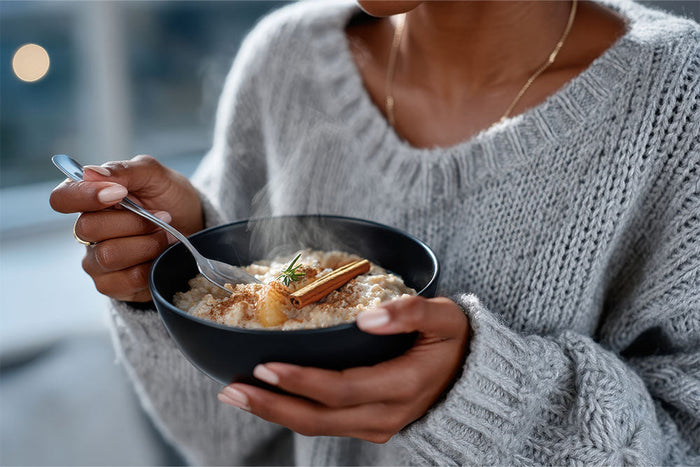As the seasons shift, it’s the perfect time to nourish your body with seasonal foods that fight inflammation and support immune health. Let’s dive into the best anti-inflammatory foods and spices for fall—from cozy root vegetables and seasonal fruits to warming herbs like turmeric and ginger.
Chronic inflammation is at the root of many modern health concerns like joint pain, digestive issues, and even cardiovascular and autoimmune conditions. Fortunately, what we eat can make a powerful impact. The autumn harvest includes many anti-inflammatory foods and spices that offer both comfort and protection during the cooler months.
Top Anti-Inflammatory Allies to Include in Your Fall Meal Planning
Root Vegetables
Examples: Sweet Potatoes, Carrots, Beets, Parsnips, Radishes
Why they help: Rich in beta-carotene and antioxidants, root vegetables combat oxidative stress and inflammation. They also contain nutrients, minerals, and bioactive compounds shown to reduce inflammation and improve overall health.
How to enjoy: Roast with olive oil and rosemary, puree into soups, or grate raw into hearty fall salads. Enjoy a variety for a broader nutrient intake.
Cruciferous Vegetables
Examples: Brussels Sprouts, Cabbage, Cauliflower, Kale, Collard Greens, Bok Choy
Why they help: Packed with vitamins, minerals, antioxidants, and phytochemicals. Associated with lower inflammatory markers, they’re also great sources of fiber and overall health boosters.
How to enjoy: Sauté with garlic and turmeric, roast until crispy, or shred into slaws with apple cider vinegar.
Winter Squash
Examples: Butternut, Acorn, Kabocha, Spaghetti, Zucchini
Why they help: High in vitamins A and C, rich in antioxidants, and a great source of fiber for gut health and inflammation regulation.
How to enjoy: Roast with cinnamon and nutmeg, blend into soups, or cube into fall stews.
Omega-3 Rich Foods
Examples: Walnuts, Chia Seeds, Ground Flaxseed, Hemp Seeds
Note: Fatty fish like salmon, tuna, herring, and sardines are also excellent omega-3 sources.
Why they help: Omega-3s counteract inflammatory omega-6s and support brain, joint, and cardiovascular health. Plant-based options also support a healthy gut microbiota.
How to enjoy: Sprinkle into oatmeal, smoothies, or autumn salads.
Seasonal Fruits
Examples: Apples, Pears, Cranberries, Pomegranates, Grapes, Figs
Why they help: Rich in antioxidants, polyphenols, and fiber. These fruits reduce inflammation and feed beneficial gut bacteria—great for chronic disease prevention.
How to enjoy: Bake into spiced crisps, simmer into chutneys, or slice fresh with cinnamon.
Anti-Inflammatory Spices
Examples: Turmeric, Ginger, Cinnamon, Cumin, Cloves, Rosemary, Black Pepper
Why they help:
- Turmeric: Curcumin reduces inflammatory pathways.
- Ginger: Eases muscle pain and supports digestion.
- Cinnamon, Cumin, Cloves: Antioxidant and antimicrobial properties.
- Rosemary: Fights inflammation and oxidative stress.
- Black Pepper: Enhances turmeric absorption and helps with inflammation.
How to enjoy: Add to warm drinks, soups, stews, or roasted vegetables. Try golden milk lattes or spiced chai teas on chilly days.

Green Tea & Herbal Tea
Why they help: Green tea contains EGCG, a potent anti-inflammatory antioxidant. Herbal teas like chamomile, ginger, and rooibos promote calm and reduce inflammation.
How to enjoy: Sip throughout the day for warmth and hydration. Most herbal teas are caffeine-free and perfect for evenings.
Mend Perform: Daily Inflammation
Along with balanced nutrition, dietary supplements backed by science can help enhance recovery. Make sure any supplement is third-party certified and cleared by your healthcare provider.
Why it helps: Mend Perform supports joint function and a healthy inflammatory response, especially during seasonal transitions.
- Ashwagandha: Supports metabolism, stress response, and joint health.
- Tart Cherry + Ginger: Botanical blend for inflammation balance.
- Turmeric Pure Gold: Organic curcumin with high bioavailability.
How to enjoy: Take 2 tablets once daily.
Final Thoughts
As you transition into fall, let your plate reflect the season’s natural rhythm—warming, grounding, and nourishing. Incorporating anti-inflammatory foods, spices, and evidence-based supplements helps build resilience through the colder months.
Interested in a more personalized nutrition approach or want to learn more about Mend Perform? Contact us at support@mend.me
For more info on Mend Perform: Daily Inflammation or to order, visit: Mend Perform: Daily Inflammation →
This article was written by Katie Frushour, MS, RD, CSSD, a dietitian at Mend.



